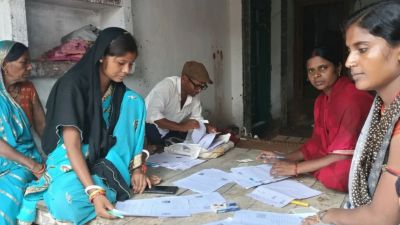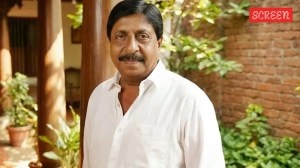Nuke talks: Kazakhstan as the n factor
With its nuclear history,un-biased image in Irans eyes and its geographical location,the former Soviet republic has emerged as the ideal neutral ground for negotiations
David M Herszenhorn
Plopped in a chair in a fifth-floor suite at the Rixos Hotel here,his eyes red from exhaustion,Foreign Minister Erlan Idrissov of Kazakhstan spoke humbly about playing host to international negotiations over Irans nuclear programme.
To put it in a nutshell,our role is very simple and very modest, Idrissov said. We have to prepare a nice coffee and nice tea,for the parties to be happy and have a really good atmosphere to focus on the issues of substance. As if to illustrate the point,he sat in front of a lavish spread of pastries and finger cakes,but left them untouched in favour of an electronic cigarette.
Nothing is simple when it comes to high-stakes diplomatic talks,thoughleast of all deciding where they will be held. On that score,Kazakhstan,a former Soviet republic between Russia and China,has pulled off something of a coup. After two days of contentious discussions between Iran and six world powers that ended with no sign of a deal,the negotiators were in accord on one point: They had found the perfect place to disagree.
One after another,delegation leaders gushed with satisfaction at their decision to return to Almaty,after holding a round of talks here in February. First it was Catherine Ashton,the European Unions foreign policy chief; then Saeed Jalili,the top negotiator for Iran. Even a senior US official took a moment to fawn at Kazakhstans truly flawless performance.
For many reasons,Kazakhstan was well positioned as neutral turf. It lies across the Caspian Sea from Iran and has experience with nuclear issues. Though the country may still be best known in the West for its connection to an oddball comedy film officials pleaded with a reporter not to mention it by name,in Soviet times it was a main testing ground for the worlds largest atomic arsenal,and its citizens have experienced the harm of radioactive fallout.
After the Soviet Union collapsed,Kazakhstan inherited a large stockpile of nuclear weapons,and voluntarily gave them up,offering something of a case study for Iran. And Kazakhstan today is the worlds largest producer of uranium,making it a major player in the civilian nuclear industry.
That Almaty is more or less centrally situated3.5 hours by plane from Tehran; 4.5 from Moscow; five from Beijing; six from Berlindid not hurt either.
Most important though Kazakhstan fit Irans requirements for a venuea country that recognises Irans right to enrich uranium for civilian purposes and that had not directly levelled any sanctions against it.
Talks have been held in three other cities over the past yearIstanbul,Baghdad and Moscowbut for various reasons,the sides did not want to go back to any of them.
Ali Vaez,a specialist on Iran with the International Crisis Group,said sanctions seemed to loom largest in choosing a site. They havent mentioned that even once in the Iranian pressthe background and history of Kazakhstan in terms of non-proliferation, said Vaez. Insistence is on the fact that Kazakhstan has not sanctioned Iran.
But Kazakhstan stressed that history in proposing to host. No other country can match our achievement of voluntary denuclearisation, President Nursultan A Nazarbayev wrote in an essay in The Washington Times.
In Almaty,Kazakhstans largest city and economic centre,the delegations found comfortable accommodations the countrys fortunes have risen because of its oil and minerals deposits. There also avoided the snarled traffic of Moscow or the security worries of Baghdad,and had the snowcapped Zalisky Alatau mountains for a backdrop.
Almaty has ambitions to become the capital of Eurasian chic,and now holds an annual fashion week. Salmat Bavaev,the director of the event,said the organisers invite designers from both Iran and the US. Saks Fifth Avenue opened a store here in October.
A US official said Idrissov,the Kazakh foreign minister,had hardly just served refreshment. He passed messages appropriately,helpful without becoming a negotiator,and provided support.
Idrissov added that Kazakhstan had an interest in the success of the talks. Iran happens to be in our part of the world, he said. We do care about long-term stability. He also conceded that his country was enjoying the attention: We are happy that Kazakhstan has become at least one point on which all parties agree 100 per cent.
- 01
- 02
- 03
- 04
- 05






























